England 2-0 Scotland: 20 years of regret from Euro 96 loss
- Published

Gary McAllister's unsuccessful penalty proved crucial to England's defeat of Scotland
It remains a game that Scotland cannot escape.
Twenty years ago today, Craig Brown's side faced England at Wembley at Euro 96 and encountered the kind of cruel fate that leaves a lasting regret.
Scotland were undone by misfortune and brilliance; two momentary interventions that extinguished their hopes. The performance overall was not bereft, which was in keeping with the tournament as a whole since Brown's team drew 0-0 with the Netherlands in the opening match and went on to defeat Switzerland 1-0.
Even so, the game still stands out in the long history of encounters between the Auld Enemy, for its circumstances, its drama and, to an extent, its heartache.
What the game meant
England needed to recover from a disappointing 1-1 draw with Switzerland in their opening game that exacerbated the criticism of the players. Manager Terry Venables had taken the squad to Hong Kong prior to the tournament, where some were pictured out drinking heavily.
Damage caused to the plane on the journey home brought further condemnation, while also building a siege mentality amongst the players and Venables, who had already announced he would be standing down after Euro 96 and would be succeeded by Glenn Hoddle.
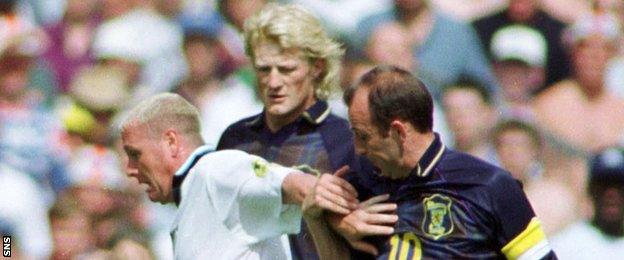
Paul Gascoigne (far left) did not know if he would feature against the Scots
Scotland were buoyed by holding the Dutch to a draw and although underdogs at Wembley, there was no sense of inferiority. Of the team that started the match, Colin Calderwood was at Tottenham, Colin Hendry had won the Premier League the year before with Blackburn (alongside England striker Alan Shearer), Gary McAllister was at Leeds and John Spencer was at Chelsea.
The rest of the team was made up of players from Aberdeen, Celtic and Rangers. For Scotland, naturally, the tie stirred memories of past excursions to Wembley and the fans mobilised en masse to London with a sense of living up to the zealous spirit of their predecessors.
The occasion worked with and against Scotland, though, since the England players were fired up by the historical significance of the game as much as the need to establish their worth at Euro 96. Before kick-off, England full-back Stuart Pearce could barely look at the Scots as they shook hands.
"You've got no friends when you play against a team like that," he later recalled.
What happened on the pitch
It was a measure of Scotland's first-half performance that England used the interval to change their line-up. The game was still tied at 0-0, which suited Brown's side because the longer the game remained in the balance, the more doubt would enter the minds of the England players.
Venables was too wily to be outfoxed, though. Recognising that his side was not dominating possession enough to threaten, he brought on midfielder Jamie Redknapp at half-time. Eight minutes into the second half, Redknapp was involved in the move that resulted in Gary Neville crossing for Shearer to open the scoring with a header.
Scotland were not subdued by the goal, and Gordon Durie's header forced David Seaman to desperately claw the ball away.
Durie was involved in the next key moment, when he reached Stuart McCall's cross ahead of Tony Adams and was knocked over by the Arsenal defender's sliding challenge.
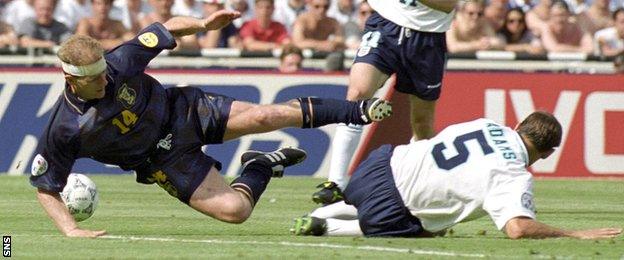
Durie is taken down by Adams
McAllister placed the ball on the spot, but as he ran to take his penalty kick, the ball rolled slightly. It was enough of a movement for Seaman to notice it and briefly wonder if the Scotland midfielder would stop and restart his run.
Instead, he struck the ball firmly but relatively straight, and Seaman blocked the spot-kick. McAllister later insisted that the movement of the ball was not an excuse for missing, but also insisted that if he had scored, he was convinced Scotland's momentum would have driven them to victory.
Instead, there was only further pain. Within 90 seconds the ball was worked out towards Paul Gascoigne, who lobbed it over Hendry then caught it on the volley to score past his Rangers team-mate, Andy Goram.
"You've got to hold your hand up at times and say it was a great piece of skill," Hendry later recalled.
Gascoigne ran to the byline and lay on his back while England players sprayed water into his mouth, mimicking the dentist's chair drinking game that had been caught on camera in Hong Kong.
Euro 96 - England v Scotland: Paul Gascoigne scores brilliant goal for England
The midfielder was typically mercurial, since it was his birthday the England players had been out celebrating in Hong Kong. He had been quiet in the opening match, too, and the Scotland bench were convinced Venables was about to replace him before he scored.
The England boss understood Gascoigne better than most, though, having worked with him at Tottenham as well.
The night before the Scotland game, Gascogine couldn't sleep and visited Venables in his hotel room. He confessed to being worried that he would not be selected for the game, and Venables told him he wouldn't be.
Even with the player in tears, Venables left him thinking that for 45 minutes, before telling him he was playing and to get off to bed to sleep.
The aftermath
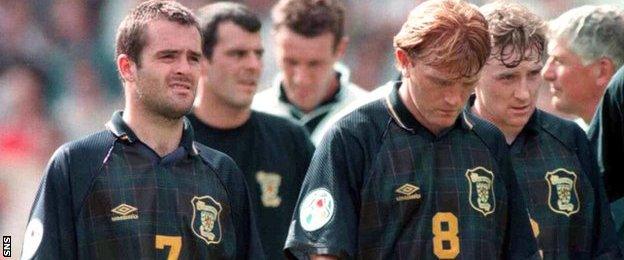
Scotland ultimately missed out on the knock-out stages
Some of the Scotland players left the pitch feeling they had let their country down, while for many of the England players it was relief that underpinned their joy.
They went on to defeat the Netherlands 4-1, but Patrick Kluivert's consolation goal for the Dutch 12 minutes before the end meant Scotland were knocked out on goals scored, despite both countries finishing on four points and with a goal difference of minus one.
England reached the semi-final, only to lose to Germany on penalties. Their defeat was overseen by Berti Vogts, who led his country to the title, and then six years later became manager of Scotland.
- Published15 June 2016
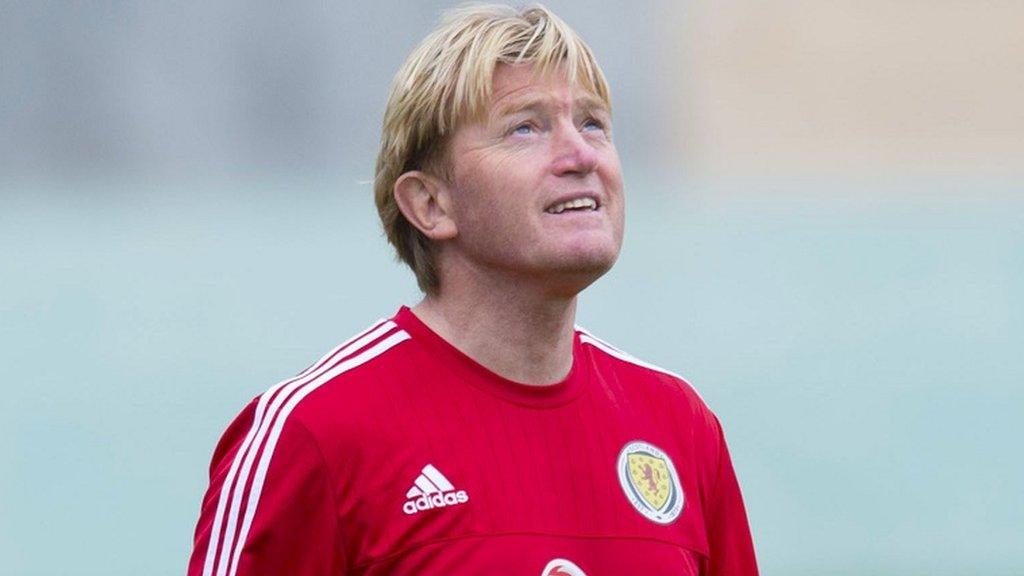
- Published15 June 2016
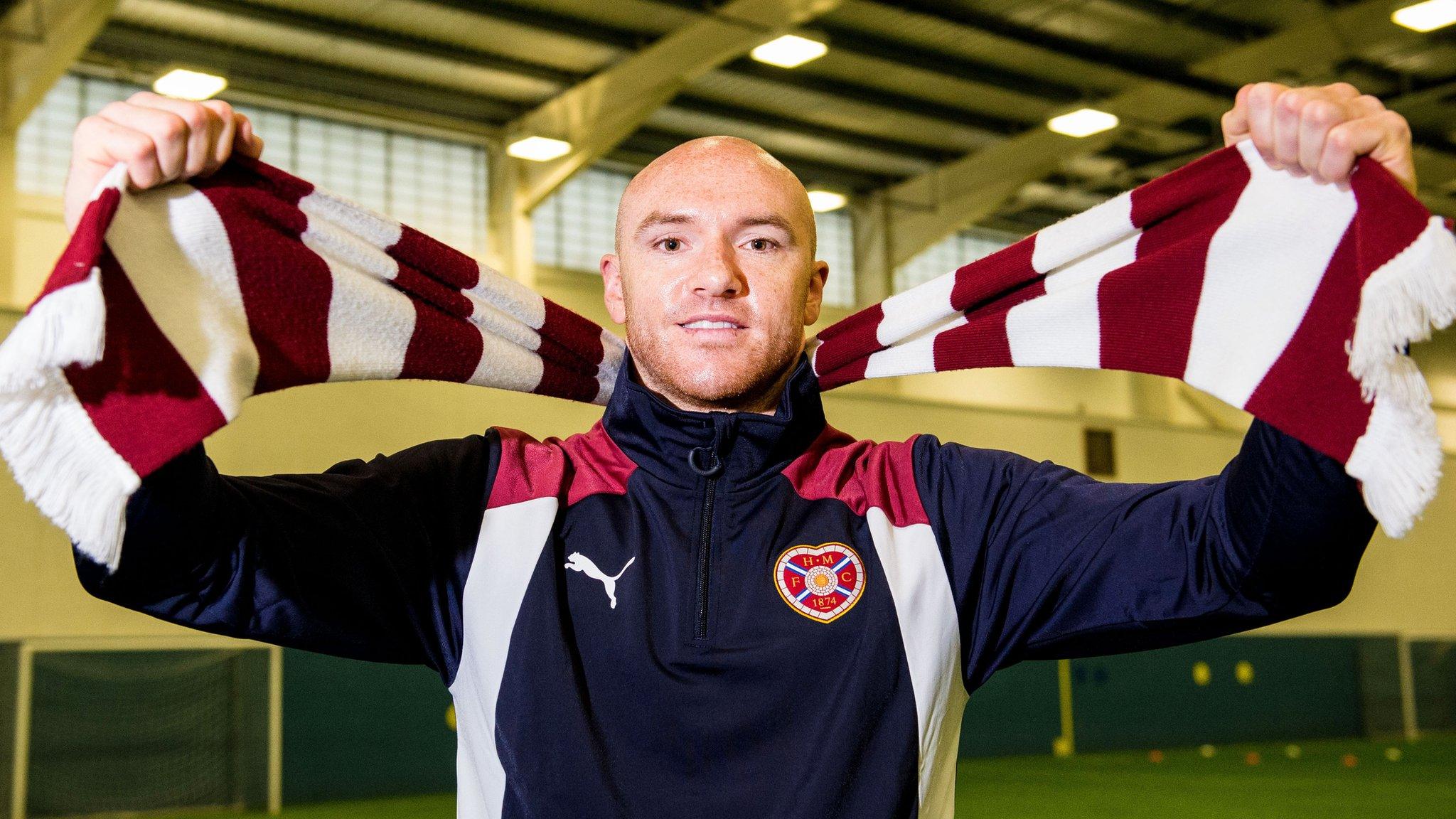
- Published15 June 2016
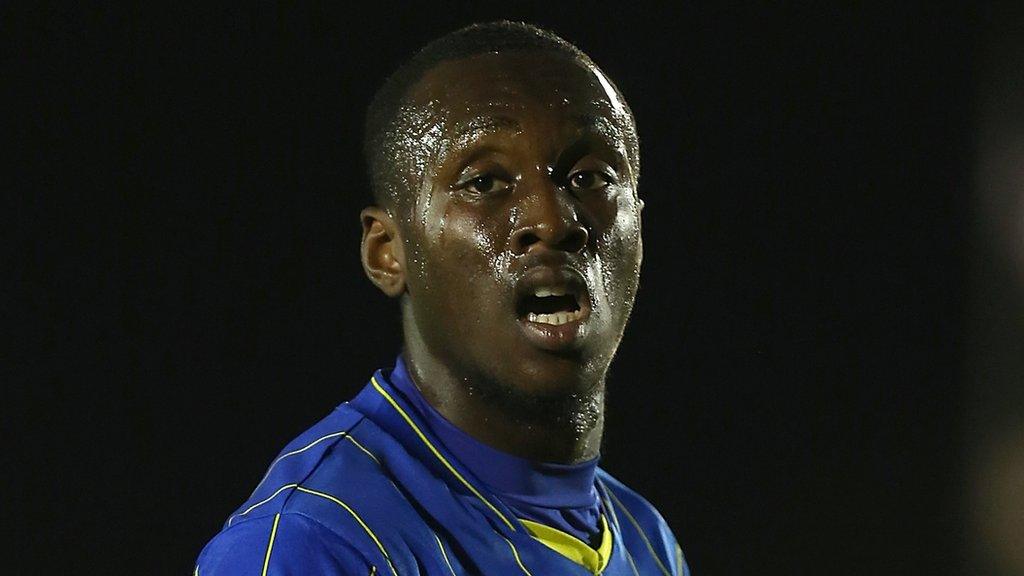
- Published7 June 2019

- Published20 June 2016
